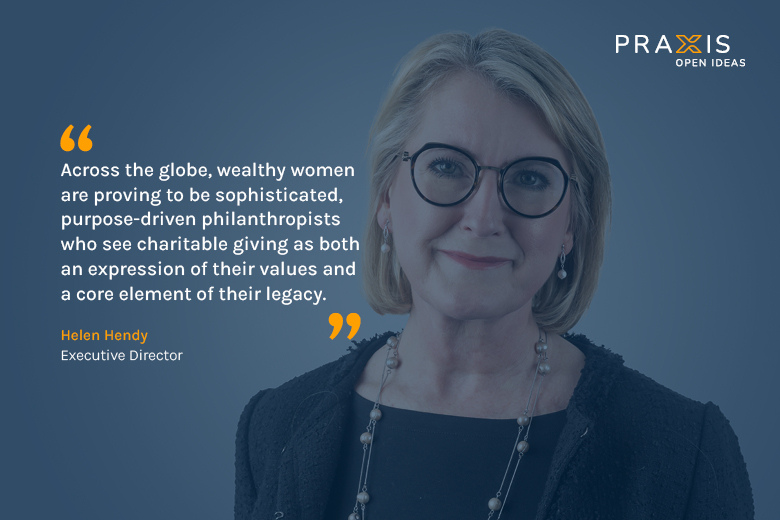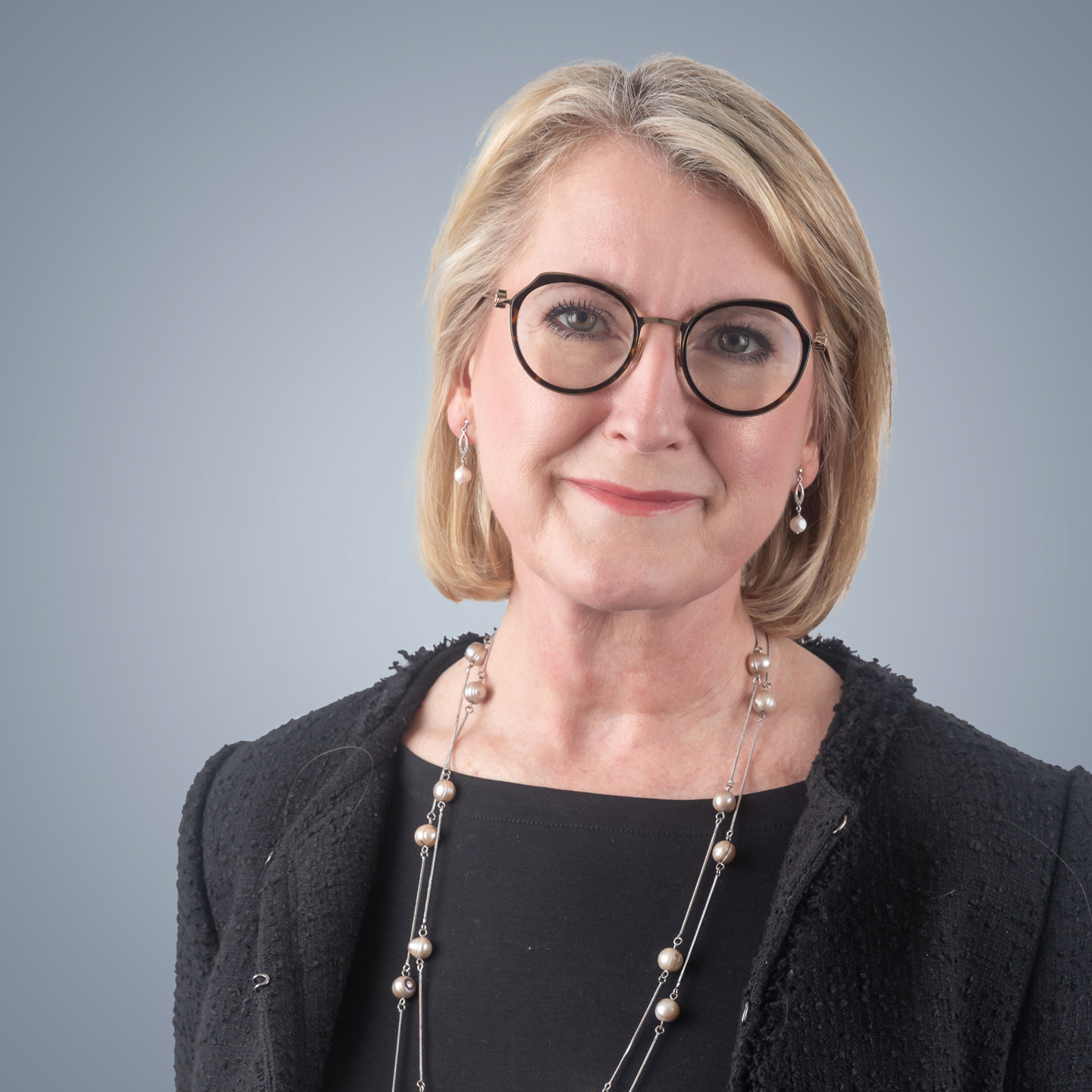
How a new generation of women is integrating philanthropy into family wealth strategies
The world of wealth and philanthropy is undergoing a seismic shift. The proportion of wealth transitioning into the control of women is unprecedented and with that comes a new dawn of financial stewardship.
In 2023, women held an estimated $60 trillion in AUM, representing roughly one-third of global financial wealth [1], and the upward trend has continued.
Women of wealth worldwide - as entrepreneurs, investors or inheritors - continue to accumulate and steward significant wealth, profoundly affecting planning and structuring opportunities. High-net-worth women - from the family business matriarch in Jersey to the fintech founder in London, the philanthropist in Hong Kong or the investor in Dubai - approach wealth planning with intention, structure and long-term vision.
Women are central to philanthropy, establishing private foundations, directing donor-advised funds, and driving impact-led strategies. Many focus on empowerment and systemic change, prioritising education, healthcare and gender equity. Across the globe, wealthy women are proving to be sophisticated, purpose-driven philanthropists who see charitable giving as both an expression of their values and a core element of their legacy.
New structures and strategies for women philanthropists
As women bring philanthropy into their wealth planning, they are expanding their toolkit. Along with direct donations, they are embracing structured giving strategies, including impact investing - harnessing markets to both solve problems and meet performance targets.
This validates what many wealthy women believe — that portfolios can reflect their values and still thrive. They increasingly allocate capital to sustainable funds, ESG mandates or mission-driven private equity, turning investments into another arm of their philanthropy.
In parallel, women of wealth are making strategic use of philanthropic vehicles to maximise impact and efficiency, and the international wealth hubs we operate in are adapting to serve their objectives across jurisdictions. Two structures have seen rapid growth:
Donor-Advised Funds (DAFs)
DAFs are immensely popular for their flexibility and immediate tax benefits. These are dedicated charitable investment accounts where a donor contributes assets to the fund and recommends grants to their chosen charities over time.
A DAF is an elegant, efficient solution for a successful entrepreneur seeking a simple, low-cost way to manage annual giving while investing charitable assets for growth. It enables strategic, cross-border family giving.
Private family foundations
The private family foundation remains a cornerstone of strategic philanthropy, and many women wealth-holders are embracing this traditional vehicle. Foundations give families complete control over their charitable agendas, branding and governance, along with the long-term administrative and compliance responsibilities.
This new generation of women uses foundations more entrepreneurially. In London, for instance, family offices often oversee investment portfolios and foundation grants, aligning financial and philanthropic strategies. In the Gulf, prominent women - including royals and business leaders in Dubai - are setting up private foundations to formalise the region’s tradition of giving to longer-term initiatives in healthcare, arts and youth development [2].
Philanthropy as a tool for family governance and cohesion
One of the most profound shifts underway is the recognition that philanthropy is not just about allocating wealth; it offers a platform to express family values and bind generations.
Engaging children and grandchildren - through a foundation board seat, joint volunteering or simply discussing causes - creates a space for family members to collaborate beyond business and finances. This strengthens bonds and prepares the next generation for stewardship, honing decision-making, governance, investing and leadership skills.
Evidence shows that embedding philanthropy into family life generates a culture of sustained giving across generations. According to a 2023 study by Fidelity Charitable, over 80% of philanthropic parents see their children follow their example.
In terms of governance, incorporating philanthropy into family structures can enhance succession planning and wealth preservation. Many family offices now have formal philanthropy committees overseeing initiatives that also serve as informal lessons in finance, risk management and ethical investing. A shared philanthropic vision can guide estate planning decisions, such as endowing a charitable trust or using life insurance to fund a foundation, aligning inheritance with impact.
In jurisdictions with estate or inheritance taxes, strategic charitable bequests can reduce tax exposure — making philanthropy a way to do good while preserving family wealth. Even in low-tax environments, philanthropy cements a family legacy beyond financial assets.
A global yet personal perspective
Integrating philanthropy into family wealth planning is as sophisticated and strategic as designing an investment portfolio or tax plan. In practical terms, every facet of wealth planning now has a counterpart in philanthropy: investment strategy comes with an ESG or impact overlay; asset protection might include provisions for endowments; and vehicles are evaluated for their benefits and efficiencies.
In Europe’s established financial centres, there is a long tradition of philanthropy, which women are modernising with global perspectives and professional management. In Asia, women wealth creators are bringing more structure, data and ambition to charitable work than the region has seen before. In the Middle East, cultural norms of generosity are evolving into formal impact programmes, often spearheaded by women leveraging their influence in family businesses and royal courts to champion education, arts and women’s rights.
Regional nuances aside, the overarching trend is a global movement of wealthy women using philanthropy to guide their families and communities toward a better future.
At Praxis, we see how integrating this approach into wealth strategies helps families deliver a broader legacy. Through impact-aligned portfolios, dedicated vehicles and family-wide engagement, we work alongside clients to ensure their wealth creates lasting, meaningful change.
Next steps
If you would like to find out more about our Private Wealth services, please contact Helen Hendy or a member of the Private Wealth team.
Sources:
- The new face of wealth: The rise of the female investor (mckinsey.com)
- Women in philanthropy resource kit (foundationsource.com)
Disclaimer:
A version of this article first appeared as a feature in Family Office Magazine.
Please note that this article is intended to provide a general overview of the matters to which it relates. It is not intended as professional advice and should not be relied upon as such. Any engagement in respect of our professional services is subject to our standard terms and conditions of business and the provision of all necessary due diligence. © Praxis 2025

